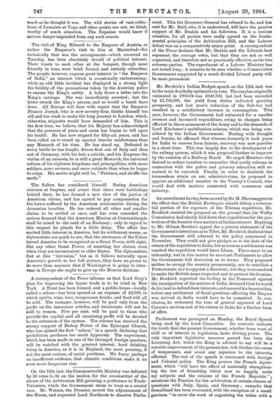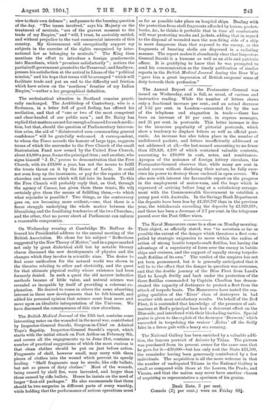Parliament was prorogued on Monday, the Royal Speech being read
by the Lord Chancellor. Its contents indicate the truth that the present Government, whether from want of skill or of interest in legislation, lacks driving power. The only important legislative measure passed has been the Licensing Act, which the King is advised to say will be a sensible improvement of the present.law, will further the cause of temperance, and avoid any injustice to the interests affected. The rest of the speech is concerned with foreign and Colonial policy. The King praises the French Agree- ment, which "will have the effect of materially strengthen- ing the ties of friendship which now so happily unite my subjects and the citizens of the French Republic " ; mentions the Treaties for the arbitration of certain classes of questions with Italy, Spain, and Germany ; remarks that Somaliland has been evacuated, with the exception of a small garrison "to cover the work of organising the tribes with a view to their own defence " ; and passes to the burning question of the day. "The issues involved," says his Majesty on the treatment of neutrals, "are of the gravest moment to the trade of my Empire," and "will, I trust, be amicably settled, and without prejudice to the vast commercial interests of this country. My Government will energetically support my subjects in the exercise of the rights recognised by inter- national law as belonging to neutrals." The King then mentions the effort to introduce a foreign gendarmerie into Macedonia, which "promises satisfactorily " ; notices the partial self-government granted to the Transvaal; and finally ex- presses his satisfaction at the arrival in Lhasa of the "political mission," and his hope that terms will be arranged "which will facilitate trade and put an end to the difficulty and friction which have arisen on the ` northern ' frontier of my Indian Empire,"—rather a lax geographical definition.



































 Previous page
Previous page